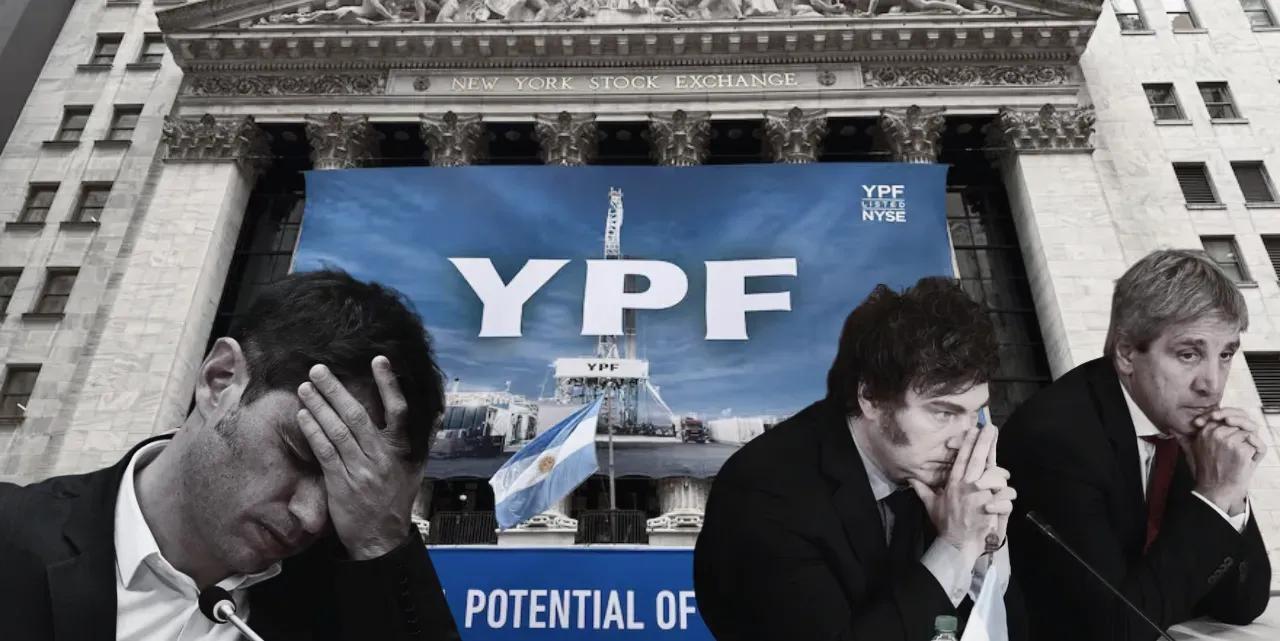Kicillof, Milei, and Caputo face the ruling on YPF that shakes Argentine politics and economy.
A ruling by Judge Loretta Preska of the U.S. District Court for the Southern District of New York has shaken the Argentine political and economic landscape: the state must transfer 51% of YPF's shares to Burford Capital and Eton Park. The amount at stake is USD 16.1 billion, and the enforcement order gives just 14 days to complete the transfer.
The origin of the conflict dates back to 2012, when the Argentine state, under the second term of Cristina Fernández de Kirchner, expropriated 51% of YPF that was in the hands of Repsol. The problem: no public offer was made to minority shareholders, as required by the company's bylaws. This omission, endorsed at the time by Kicillof, is the legal basis on which Judge Preska built her ruling.
The measure orders that the share package –the Class D shares held by the state– be deposited in a BNY Mellon bank account. The judge even reminded the government that it has options to comply: to secure two-thirds of Congress, amend the law, or negotiate an agreement. But she made it clear that the obligation does not disappear.
Meanwhile, the markets reacted strongly. YPF's shares fell 8% on Wall Street and more than 5% in Buenos Aires. The Merval index dropped 3%, and Argentine bonds returned to negative territory. Local analysts warn of a possible increase in country risk and a potential contagion effect on other public assets.
The government has already anticipated that it will appeal the ruling to the Second Circuit Court of New York, although so far it has not presented guarantees or formal proposals. There is even the possibility of negotiating a payment plan to avoid the immediate transfer.
On the other hand, the figure of Axel Kicillof has found himself once again in the eye of the storm. His phrase from 2012, “The stupid ones are those who think the state should be foolish and buy everything according to YPF's own law”.
The situation is escalating quickly and could mark a turning point in Argentina's relationship with U.S. justice and international investment funds. With lawsuits still open over the default debt of 2001, and public companies exposed, the ruling sets a high-voltage precedent.
“YPF is not for sale”, some activists shouted. But this time, the cry sounds more like nostalgia than a defense. Because if there is no quick legal reaction, Argentine oil could fall into foreign hands… due to the same old mistakes.

Comments